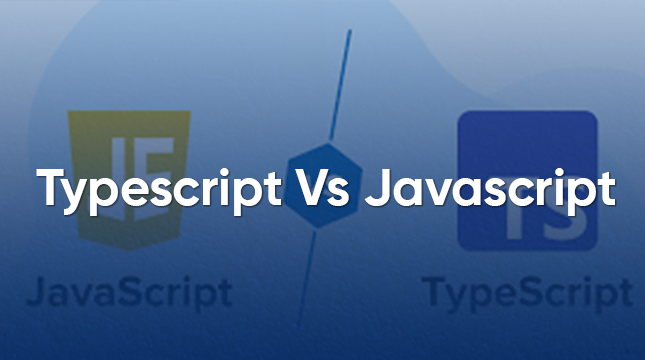This website uses cookies so that we can provide you with the best user experience possible. Cookie information is stored in your browser and performs functions such as recognising you when you return to our website and helping our team to understand which sections of the website you find most interesting and useful.
Why Choose Node.js For Real-Time Application Development
For the majority of developers, creating apps that users can interact with in real-time has become a requirement in this digital age when time’s worth is increasing steadily. Each type of app—web, desktop, and mobile—incorporates at least one real-time functionality. For instance, real-time texting and alerts are two highly popular real-time features seen in apps.
What Can Real-Time Applications Do?
Apps that conduct many tasks in real time give the user the impression that they are happening quickly or in real time. The best examples of real-time apps include cloud storage services, VoIP (voice over internet protocol), some eCommerce transactions, instant messaging, chatting, online gaming, and video conference apps.
What Industries Use Real-Time Apps?
As was already said, sending messages and receiving notifications are two popular uses for real-time apps. The real-time apps serve a variety of functions:
Delivery of Notifications in Real Time
Real-time notifications have changed the game in terms of boosting user engagement with apps. Because of this, it is uncommon to discover a modern program that doesn’t provide users with real-time notifications.
Instant Messaging
Many individuals are familiar with the use of real-time messaging programs, especially those for mobile devices, such as Facebook Messenger, WhatsApp, and many more.
Real-time texting is used elsewhere besides merely in chat apps, though. Collaborative platforms, delivery applications, and on-demand taxi booking apps have real-time texting capabilities.
What is Node.js?
In 2009, Ryan Dahl introduced Node.js, an open-source server-side JavaScript runtime environment. Since then, Node.js server-side JavaScript has been used as a fix for a variety of issues.
Outside of the browser, Node.js manages the V8 JavaScript engine, which is at the heart of Google Chrome. Because of this, Node.js is really quick.
Apps written with Node.js operate in a single process rather than opening a new thread for each request. Stalling activity is the exception rather than the rule in the Node.js standard library because it contains a set of asynchronous I/O primitives that prevent JavaScript code from blocking and because libraries in Node.js are frequently developed using non-blocking paradigms.
When Node.js performs an I/O action, such as reading from the network, accessing a database, or accessing the filesystem, Node.js restart the activities as the response returns. This avoids blocking the thread and wasting CPU cycles while waiting for a response.
This eliminates the need for thread concurrency management, enabling Node.js to manage thousands of concurrent connections on a single server.
Therefore, Node.js is a great option for creating real-time apps and will provide businesses with a number of advantages, including increased productivity and usability.
8 Reasons Why Node.js is Best for Building Real-time Apps
1) Speed:
A web application’s quality is determined by how quickly it responds. Just as they become impatient waiting for your server to load, users get impatient waiting for a web application to precisely respond in real time.
Thankfully, Node.js enables you to process massive amounts of data quickly and feed it back to your end-user without the need for a big number of servers to accommodate the demand.
2) Single Code:
It is simpler to transmit data between the server and the client for the best synchronization when Node.js developers write JavaScript for both the client and the server.
Single codebase techniques enable developers to save time while writing and running code because they do not require them to write code independently.
3) Proxy Server:
In some circumstances, creating a secret area to store data and control user behavior during application development is necessary.
However, if you work in a team, it may be difficult to preserve confidential information on your desktop. One method is to use a proxy server that only keeps cookies, HTTP headers, and other non-sensitive data.
When your consumers use a tool like node-HTTP-proxy to access an external domain name, they won’t be aware that they are interacting with an API server because everything looks to be flawless.
4) Reusability of Code:
One of the most important considerations when creating real-time web apps is code reuse. When your competent developers run into trouble, they may quickly consult with other team members or replace certain parts to determine whether doing so will help them move forward with the task at hand – without holding up anything else.
Node.js significantly simplifies this by providing access to all available modules through communities like NPM (Node Package Manager).
5) Event-driven Server:
As you are aware, real-time apps work with a lot of users at once. This is where Node.js’s event-driven and asynchronous features are useful. Node.js enables developers to easily manage many requests using an event-driven server due to its non-blocking feature.
Additionally, developers may do data synchronization and transfer with ease. Finally, there would be quicker and more seamless data dissemination to end users. Node.js is so well-liked these days because of this.
6) Data Handling:
When it comes to working with data, Node.js is strong. For instance, using their smartphones or tablets while out and about, your users can update your database in real-time and even add new data.
Depending on what is best for your project, you can then immediately run some logic on that user’s data (as it comes in) or you may schedule it to be handled at regular intervals later on when you have time.
All of this suggests that the period between occurrences and the responses to them will be shorter.
7) I/O Bound Tasks:
You spend the majority of your time waiting for the filesystem, network, and maybe database I/O to complete. Increasing the network connection speed or the hard disc speed can boost overall performance.
In its most basic form, Node.js is perfectly suited for this kind of computing. Since Node.js’s I/O is non-blocking, you can handle other requests while you wait for a read or write to complete.
8) Single Language:
It’s not surprising that Node.js is quickly gaining favor as a tool for creating real-time applications that are quick, scalable, and safe. It simply employs JavaScript, a single programming language, making development simpler than ever.
With this project simplification, you can maintain both backend systems because they are translated into a single file, allowing modifications to be made more quickly without the need to start from scratch or spend hours editing code from several languages.
Why Netizens Technologies for Developing Real-time Apps using Node.js?
With a knowledgeable and experienced Node.js staff, we help clients all over the world create feature-rich, superior-quality products that are scalable.
We are skilled at developing a variety of apps, including streaming apps, single-page apps, IoT apps, and real-time chat apps.
Your unique project needs can be met by our Node.js developers. Customers can employ one of our expert Node.js developers to receive the best Node.js Development Services if their projects require technical expertise and knowledge. In addition to being professionals in coding, our team of Node.js developers is committed to providing customers with a high-quality product that satisfies their expectations.
Work together to hire skilled Node.js developers to create real-time applications.

Let's Start Your Project
Get free consultation for your digital product idea to turn it into reality!
Get Started






